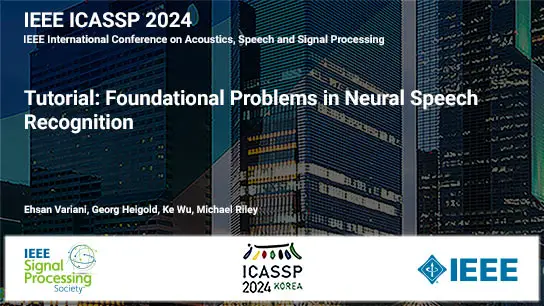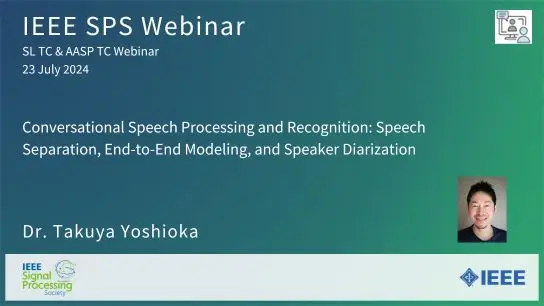Performance-Efficiency Trade-offs in Unsupervised Pre-training for Speech Recognition
Felix Wu, Kwangyoun Kim, Jing Pan, Kyu Han, Kilian Weinberger, Yoav Artzi
-
Members: FreeSPS
IEEE Members: $11.00
Non-members: $15.00Length: 00:15:04
11 May 2022
This paper is a study of performance-efficiency trade-offs in pre-trained models for automatic speech recognition (ASR). We focus on wav2vec 2.0, and formalize several architecture designs that influence both the model performance and its efficiency. Putting together all our observations, we introduce SEW-D (Squeezed and Efficient Wav2vec with Disentangled Attention), a pre-trained model architecture with significant improvements along both performance and efficiency dimensions across a variety of training setups. For example, under the 100h-960h semi-supervised setup on LibriSpeech, SEW-D achieves a 1.9x inference speedup compared to wav2vec 2.0, with a 13.5% relative reduction in word error rate. With a similar inference time, SEW reduces word error rate by 25-50% across different model sizes.



